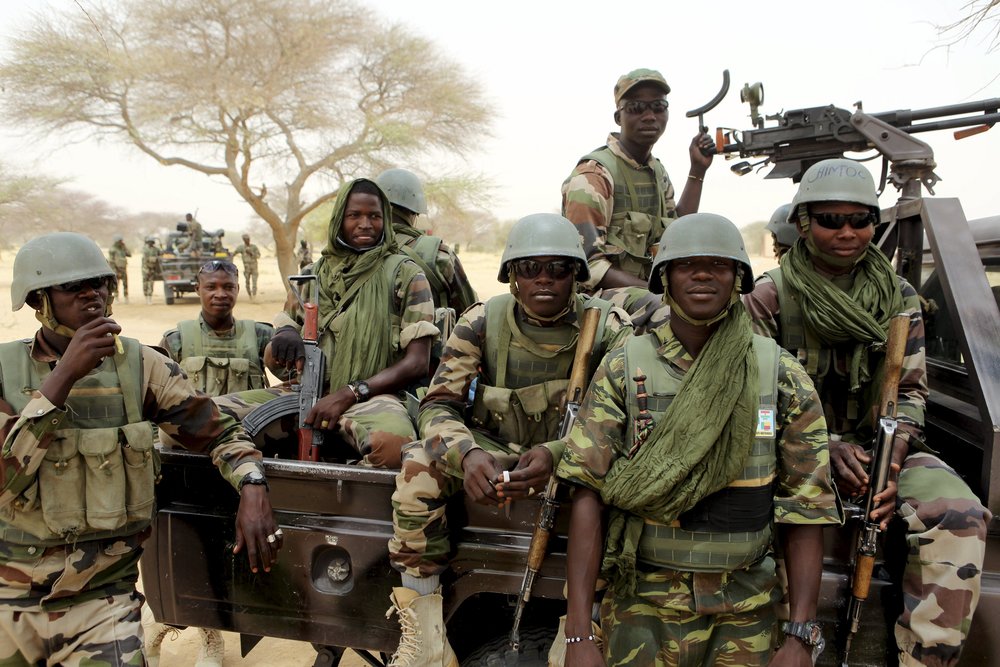Is Boko Haram's insurgency really over, following the Sambisa forest offensive?

Nigeria claims Sambisa forest offensive 'final crushing of Boko Haram' but attacks blamed on group continue.
The Nigerian army has been fighting a violent insurgency at the hands of Boko Haram terror group for the past seven years. The fighting has caused the death of at least 20,000 people and the displacement of millions in Nigeria and neighboring countries in the Lake Chad basin area.
Boko Haram used to control territories the size of Belgium. However, the ongoing military operation Lafiya Dole, and a regional offensive – consisting of 8,700 troops from Nigeria, Niger, Chad, Cameroon and Benin – have scored some success, with soldiers recapturing key territories and releasing thousands of civilians held captive by the group.
Earlier in December, the Nigerian army claimed it had captured Boko Haram's last known stronghold in the Sambisa forest, Borno state.
In an email seen by Reuters, President Muhammadu Buhari said the terrorists were “on the run, and no longer have a place to hide.”
He added that the recapture of Camp Zero marked the “final crushing of Boko Haram terrorists in their last enclave in Sambisa forest”.
However, the claim was quickly dismissed by Boko Haram's contested leader Abubakar Shekau, who accused Nigeria of spreading lies. Shekau said the video had been filmed on Christmas Day, but the Nigerian army believes it is simply propaganda and a desperate effort by the group to prove it still holds power in the forest region.
Declaring defeat 'premature'
This is not the first time that Buhari has claimed the fight against Boko Haram was over. In December 2015, the leader declared a technical victory over the fight against the insurgents. However, Boko Haram still carries out attacks, with security experts warning that underlying issues such as disenfranchisement, poverty and strong links with Islamic State (ISIL) would continue to pose major threats to stability in the region.
Some have pointed out that, although the army stormed Boko Haram’s stronghold in Sambisa, declaring a victory over the group is premature, given that it is still able to carry out attacks and recruit people – could relocate somewhere else in Nigeria or neighboring countries.
Nigerian security expert, Dr Ona Ekhomu, warned that the government must ensure strict Wahhabi ideology, propagated by Boko Haram, must be tackled to effectively end the insurgency.
“Boko Haram terrorists do not wear uniforms and they look like everyone else in the general population. So, it is easy for their foot soldiers to escape far from the northeast in search of refuge in the south or elsewhere. My fear is that with leadership, these guys can regroup quickly and resume their campaign of violence,” he was quoted by the Vanguard as saying.
David Otto, counter-terrorism expert at UK-based TGS Intelligence Consultants, believes Boko Haram has more than one strongholds in Sambisa, which covers an area of 322 miles across Nigeria, Sudan and the Sahel Acacia savannah.
“Boko Haram does not operate in one particular area within the Nigerian zone, but it moves between Chad, Cameroon and Niger and stretches itself up to Mali and even Sudan and Libya. The organization is very fluid and there are more than one faction,” he told IBTimes UK.
“The Nigerian army has the capacity of fighting Boko Haram, but it is incomprehensible to say that they captured Sambisa, which is almost the same as saying that they secured the Sahara desert. Even if a multi-national force captures the forest, it is impossible to fully occupy it and Boko Haram would simply move to another part of the forest,” Otto, who is also a senior adviser for Global Risk International, continued.
“There is no pressure for the Nigerian army and government to come out and say that they have defeated Boko Haram, whose priority now is not to win the war, but to survive and make sure they can inflict as much pain as damage to the people as possible.”
(Source: International Business Times)
